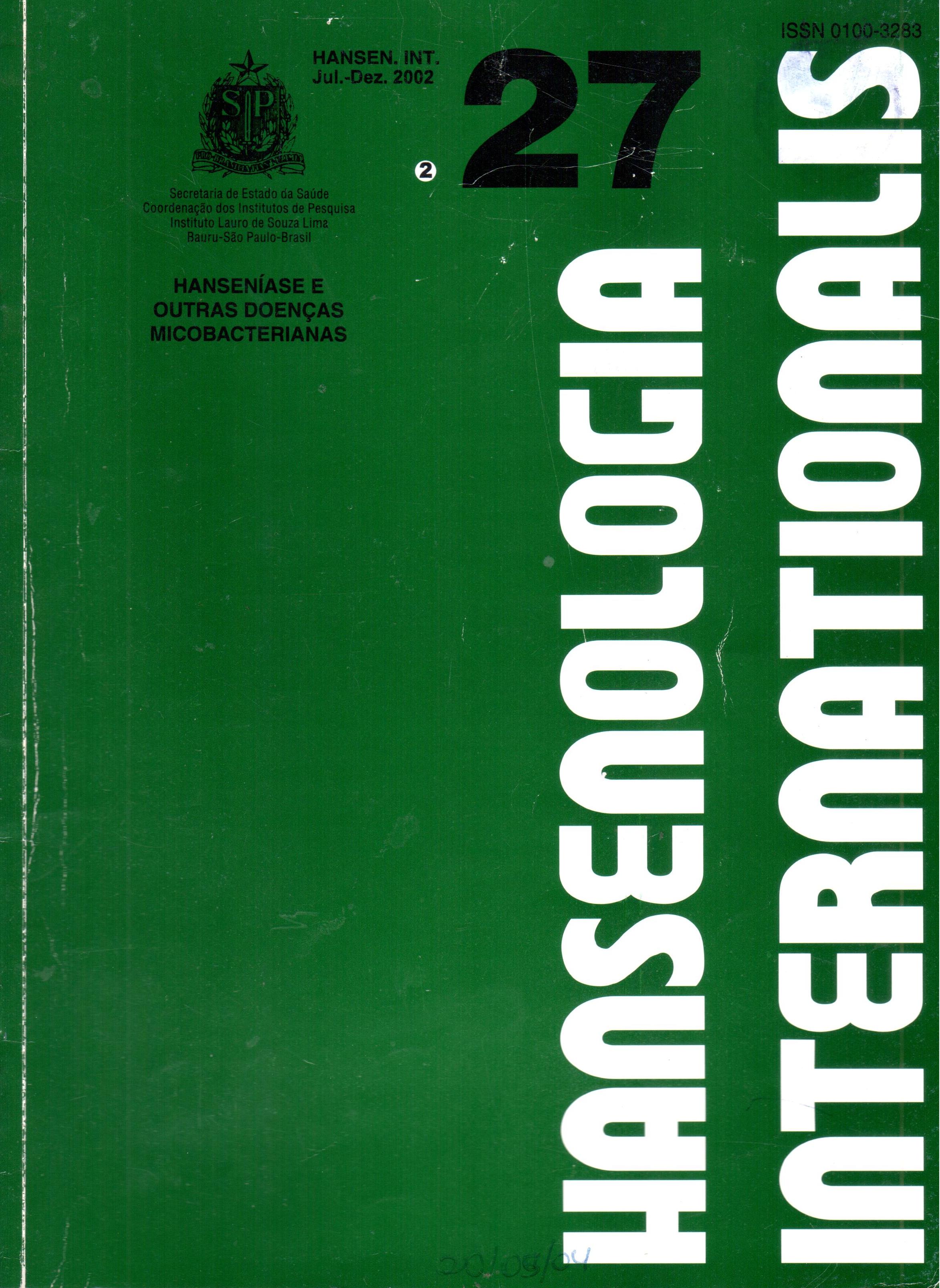Abstract
The efforts to obtain the elimination of leprosy as a public health problem until 2005 in all countries has, among its central strategic elements, the training of health professionals, and integration of leprosy into the basic health system. The Sanitary Dermatological Program of the Health State Secretariat of Rio de Janeiro State, Brazil, has been implementing training in case detection, diagnosis, and treatment / follow-up of leprosy patients by professionals of the basic health system since 1998. The course "Leprosy in the Basic Health System" was performed in 2001 in
the eight regions of Rio de Janeiro State, with 79 of the 92 cities of the state sending 891 health professionals to be trained. Among then, 10.1% answered a questionnaire to evaluate the affectivity of the training. We observed a significant increase in the number of health professionals who work with leprosy patients after participating in the training, compared to the professionals working with leprosy before training, especially in relation to the physicians and "health agents" (p <0.05). These results demonstrate the affectivity and the need of continuous training, aiming to obtain and maintain the elimination of leprosy as a public health problem.
References
2 BRASIL. Ministério da Saúde. Secretaria de políticas e Saúde. Área Técnica de Dermatologia Sanitária. Diretrizes nacionais para a elaboração de programas de capacitacão para a equipe e saúde a rede básica atuar nas afies de controle a hanseníase. Brasilia, 2000. 60p.
3 BRASIL. Ministério da Saúde. Portaria 1073/GM, de 26 de Setembro de 2000. Brasilia.
4 CONASEMS. Como os gestoresmunicipais de saúde vão acelerar a eliminação da hansenfase no Brasil. Brasilia, 1999. 28 p.
5 CROOK, N.; RAMASUBBAN, R.; SAMY, A., SINGH, B. An educational approach to leprosy control: an evaluation of knowledge, attitudes and practice in two poor localities in Bombay, India. Leprosy Rev., v.62, p395-401, 1991.
6 FEENSTRA, P Leprosy control through general health services and/or combined programmes. Leprosy Rev., v.64, p.89-96, 1993.
7 GROENEN,G.;ALLDRED, N.; NASH, J. Comment: Training in leprosy. the training needs for Africa, and the role of large training institutions (Letter). Leprosy Rev., v.67, p.148-150, 1996.
8 GT/HANSEN/CONASSEMS.Estratégiadeaceleraçãodaeliminaçãoda hanseníase emtodos osmunicípios doBrasil. Salvador, Agosto/2000.
9 LEVER, P.; BIJMAKERS, L., ZWANIKKEN, P.; SAAUNDERSON, P. Health systems research in leprosy control - what contributions can it make? Leprosy Rev, v.69, p.122-127,1998.
10 McDOUGALL, A.C. Training in leprosy: does the current strategy need revision? LeprosyRev, v.66, p.89-95, 1995.
11 NORDEEN, S.K Elimination of leprosy as a public health problem. Leprosy Rev.,v.63,p.1-4,1992.
12 REVANKAR, C.R.; PAI, V.V.; GANPATI, R.; NAIK, S.S.; ACHAREKAR, M.Y. Task-oriented short-term training to contract leprosy workers in a national leprosy erradication programme. Leprosy Rev, v.66, n.1, p.78-79, 1995.
13 ROOS, B.R.; VAN BRAKEL, W.H.; CHAURASIA, A.K Integration of leprosy control into basic health services; an example from Nepal. Int. J. Leprosy, v.63,n.3,p.422-429,1995.
14 SAUNDERSON, P. Future role of leprosy training and / or research intitutions. ALERT, February 25-26,1998. Leprosy Rev., v.69, p.160-163, 1998.
15 SAUNDERSON, P. Joint tuberculosis/leprosy programmes. Leprosy Rev, v.68, p.2-9, 1997.
16 CONFERÊNCIA INTERNACIONAL DE ELIMINAÇÃO DA HANSENIASE, 3, Abdjan, Costa do Marfim, Novembro de 1999. apud GT/HANSEN/CONASSEMS. Estratégias de aceleração da eliminação da hansenfase em todos os municípios do Brasil. Salvador, Agosto, 2000.
17 VIJAYAKUMARAN, P.; RAO, T.P; KRISHNAMURTHY, P. Pace of leprosy elimination and support teams in Bihar State, India. Leprosy Rev., v.70, p.452-458, 1999.
18 WARNDORFF, D.K; WARNDORFF, J.A. Leprosy control in Zimbabwe: from a vertical to a horizontal programme. Leprosy Rev., v.61, p.183-187, 1990.
19 WHO TECHNICAL REPORT SERIES, no. 319, 1966 (WHO Expert Committee on Leprosy: Third Report). Gtado por: FEENSTRA F Leprosy control through general health services and/or combined programmes. LeprosyRev., v.64, p89-96, 1993. 76

This work is licensed under a Creative Commons Attribution 4.0 International License.
